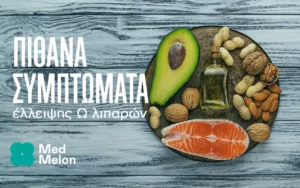Scientific Names of Cardamom Seed:
Elettaria cardamomum (L.) Maton [Fam. Zingiberaceae]
Forms:
Infusion, powder, and tincture made from the seeds of Elettaria cardamomum.
Traditional Usage:
– Analgesic
– Antibacterial
– Anti-inflammatory
– Antioxidant
– Antiseptic
– Antispasmodic
– Antiviral
– Appetite loss
– Bad Breath
– Bronchitis
– Colds, Flu and Bronchitis
– Colic
– Digestive Disorders
– Emphysema
– Fainting
– Fever
– Gallbladder Problems
– Heartburn
– Hemorrhoids
– Infections
– Laryngitis
– Liver Health Maintenance
– Respiratory Health Maintenance
– Sore throat
– Stimulant
Overview:
Cardamom, Elettaria cardamomum (L.) Maton [Fam. Zingiberaceae], also known as Cardamon or Cardamomi semina, is a plant found in Southern India, Shri Lanka, Southeast Asia, Guatemala, the Malabar coast, and in Ceylon. Lesser or true cardamom, Elettaria cardamomum (L.) Maton var. miniscula Burkill, is the widely cultivated variety important in world trade. Cardamom is a sweet spice used predominantly to flavor sweets, baked goods, and coffee, particularly in Arab countries. Cardamom is also employed as a medicinal flavouring agent. In traditional medicine, cardamom seeds are given for a variety of ailments including acute respiratory disorders, stomach complaints, hemorrhoids, bad breath, sore throat, colds, fever, bronchitis, gallbladder problems, flatulence, and colic. However, there is little scientific evidence to back up these claims. Cardamom is a pungent, aromatic, carminative that increases biliary flow out of the gallbladder and reputedly prevents infections and viruses from settling in. Dr. James Duke in The Green Pharmacy recommends adding cardamom seeds to coffee as a stimulant and for preventing fainting. Cardamon is the richest known source of the compound cineole, which is present in most oils used by aromatherapists for preventing fainting. Cineole is a potent antiseptic that kills bad breath bacteria and treats other infections. Cineole also has expectorant activity for clearing breathing passages. Cardamom is also rich in the compound, borneol, known to help prevent and treat gallbladder and kidney stones. Dr. Duke additionally recommends cardamom seeds for emphysema, heartburn, laryngitis and other conditions. Used topically, oil extracts from cardamom seeds greatly enhance the absorption of drugs administered through a skin cream. The volatile oil of cardamom seeds, which constitutes about 5% of the seed’s total weight, has also been shown to have significant anti-inflammatory, analgesic and antispasmodic activity. Studies show that the antispasmodic activity of cardamom oil is exerted through muscarinic receptor blockage.
Active Ingredients:
Cardamom seeds contain: ash, bisabolene, borneol, boron, calcium, campesterol, camphene, camphor, carbohydrates, cardiolipin, delta-5,7,22-cholestatrienol, cholesterol, chromium, 1,8-cineole, citronellal, citronellol, cobalt, alpha-copaene, copper, p-cymene, desmosterol, eo, 7-ergosterol, eugenyl-acetate, fat, fiber, geraniol, geranyl-acetate, N-hentriactane, N-hentriacontene, N-heptacosane, iron, limonene, linalool, linalyl-acetate, linoleic-acid, lysophosphatidylcholine, manganese, cis-p-menth-2-en-1-ol, methyl-heptenone, myrcene, nerol, nerolidol, neryl-acetate, niacin, N-nonacosane, N-nonacosene, oleic-acid, palmitic-acid, N-pentacosane, N-pentacosene, alpha-phellandrene, phosphatidylethanolamine, phosphatidyinositol, alpha-pinene, beta-pinene, phosphorus, phytol, potassium, protein, riboflavin, sabinene, trans-sabinene-hydrate, beta-sitosternone, beta-sitosterol, sodium, starch, stearic-acid, stigmasterol, sugar, alpha-terpinene, gamma-terpinene, terpinen-4-ol, alpha-terpineol, alpha-terpinyl-acetate, D-alpha-terpinyl-acetate, D-phi-terpinyl-acetate, thiamin, alpha-thujene, alpha-tocopherol, gamma-tocopherol, N-tricosane, N-tricosene, N-tritriacontane, N-tritriacontene, alpha-ylangene, zinc. [Duke JA. 1992. Handbook of Phytochemical Constituents of GRAS Herbs and Other Economic Plants. CRC Press, Boca Raton, FL, pp. 239-240].
Suggested Amount:
The recommended daily dose of cardamom seed is 1.5 grams.
Powder: 10-30 grains
Tincture: 1-2 grams
Tea: 1.5 grams.
Note: 1 grain (= 64.79891 mg) with 7000 grains = 1 pound
16 grains = 1 gram
27.34375 grains = 1 dram (= 1.771845195 g)
[Anglo-Saxon Weights & Measures]
Drug Interactions:
None known.
Contraindications:
None known.
Side Effects:
None known. One source notes that cardamom stimulates the gallbladder and could cause pain for those with gallstones, however other sources recommend the herb for gallbladder conditions and note that the seed contains compounds which may help increase bile solubility thereby helping to dissolve gravel. It is recommended to consult a physician prior to using cardamom in medicinal dosages in the case of advanced gallstones.
References:
al-Zuhair H, el-Sayeh B, Ameen HA, al-Shoora H. Pharmacological studies of cardamom oil in animals. Pharmacol Res. 1996 Jul-Aug; 34(1-2): 79-82.
Duke, J. 1997: The Green Pharmacy, The Ultimate Compendium of Natural Remedies from the World’s Foremost Authority on Healing and Herbs. Pp. 15; 82; 94; 223; 232-33; 237; 253-54; 293; 370-71; 536. Rodale Press.
Felter, H.W. and Lloyd, J.U. 1898. King’s American Dispensatory, 18th ed., 3rd revision, reprinted 1983, Eclectic Medical Publications, Portland, OR, 1898, 2 vols.
Govindarajan VS, Narasimhan S, Raghuveer KG, Lewis YS. Cardamom–production, technology, chemistry, and quality. Crit Rev Food Sci Nutr. 1982; 16(3): 229-326.
Huang YB, Hsu LR, Wu PC, Ko HM, Tsai YH. Crude drug (Zingiberaceae) enhancement of percutaneous absorption of indomethacin: in vitro and in vivo permeation. Gaoxiong Yi Xue Ke Xue Za Zhi. 1993 Jul; 9(7): 392-400.




